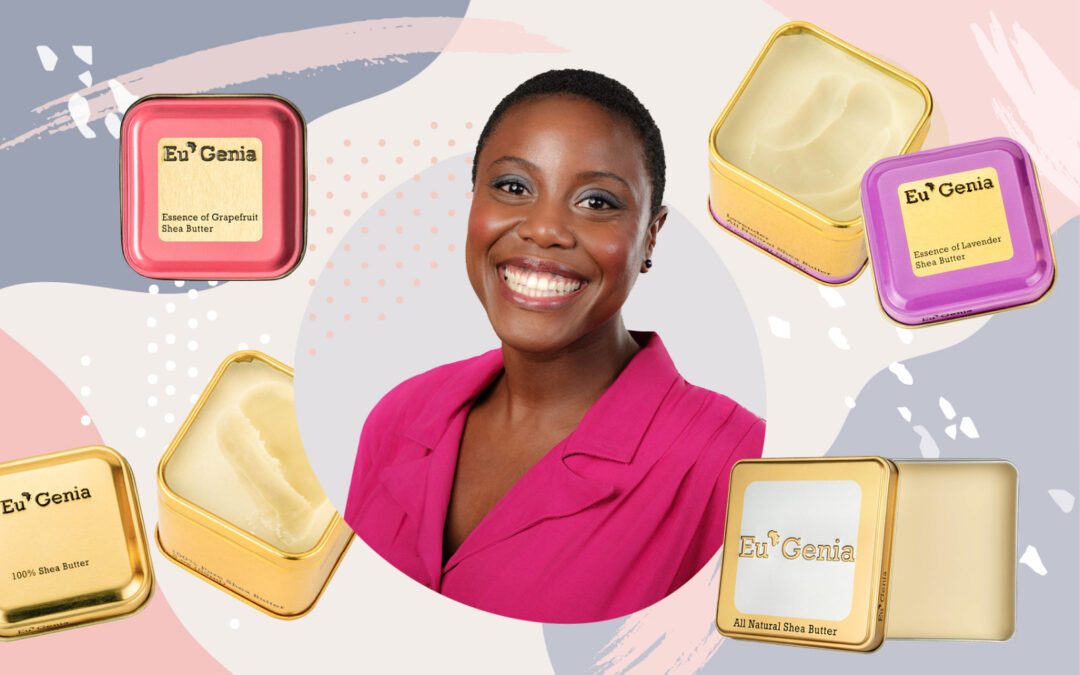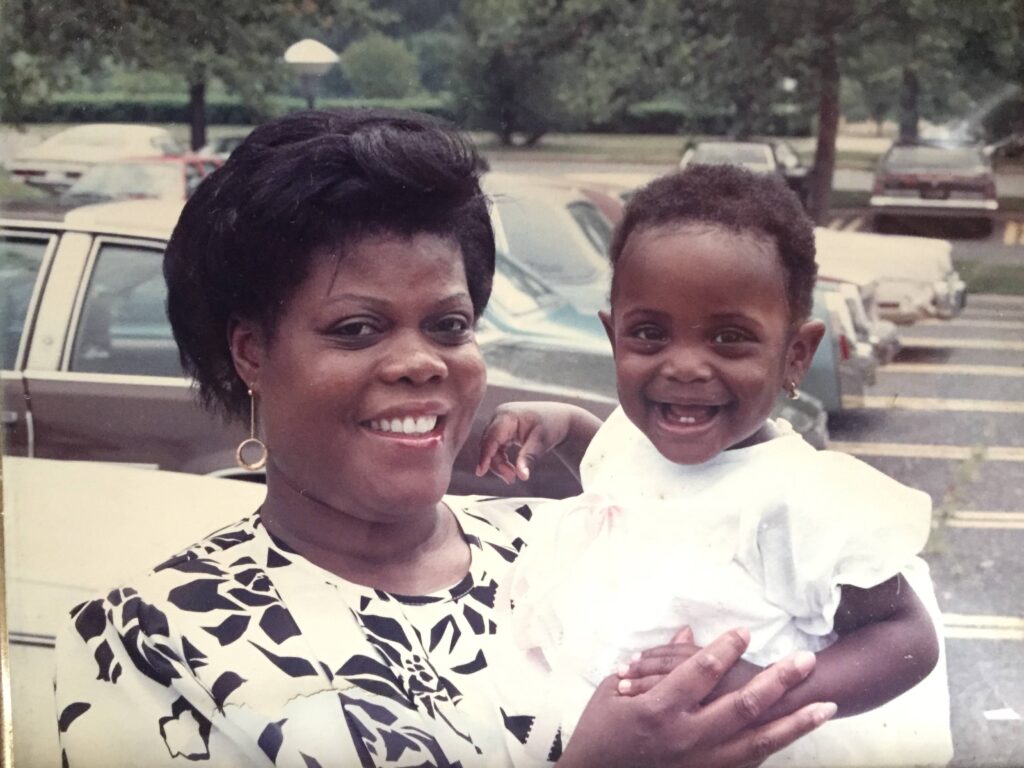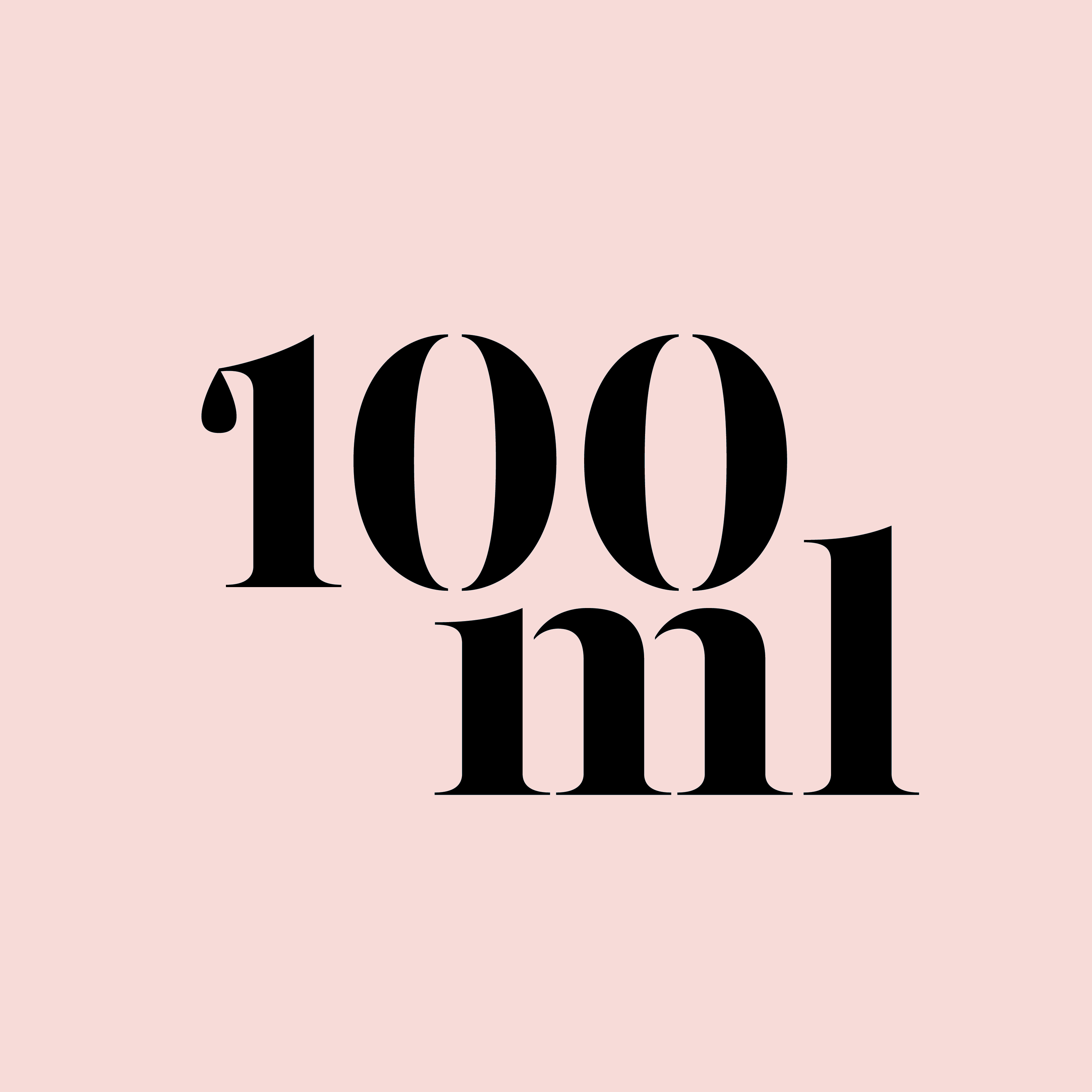
Eu’Genia founder Naa-Sakle Akuete began her career in finance as a Wall Street analyst before turning her attention to the world of beauty. When her mother became sick, Akuete returned to Ghana to take care of her. Eventually, she took over her mom’s bulk shea butter distribution business, which also led to the creation of her own skincare brand. Building on her mother’s experience as the President of the Global Shea Alliance, Eu’Genia is all about high quality shea butter that’s sustainably sourced from Ghana and dedicated to providing fair wages and opportunities for its female workers. Akuete also wants to change how shea butter is perceived and marketed. Eu’Genia’s beautiful embossed tins pay homage to Ghana with a map and crest of the country on its packaging.
100 ML spoke with Naa-Sakle Akuete about how the idea for Eu’Genia came to life and how Ghana’s shea butter inspired it all.
How did Ghana inspire the creation of Eu’Genia?
I was born in the US and lived my whole life here. My mom moved back to Ghana in 2000 and I would always go back for summers. My name is Naa-Sakle so people see me and think I’m a thousand percent American but when they hear me speak, they say, “Oh, you don’t have an accent.” In the US, I’m not fully American, and in Ghana, regardless of how I’m dressed, something about my aura just screams American as well. And so in Ghana, also not fully Ghanian. This brand was a cool combination of both sides of me where the inside is shea butter from Ghana—a really rich, nourishing ingredient with a ton of history, but packaged in a way that is more palatable to the American consumer.
In Ghana, shea butter is considered women’s gold. Why is that?
My grandmother was a midwife who started her own business in colonial era Ghana and used shea butter on pregnant moms for stretch marks and on babies for diaper rash. 90% of the use of shea is actually in food, which is something that we don’t really think about. It is every part of your life. It’s in food and it’s a great moisturizer.
Besides that, they are around 16 million women across Sub-Saharan Africa who support themselves and their families through the industry. And it’s entirely women. Collecting shea is considered woman’s work. These women are geographically fragmented, they don’t speak English, they’re not literate in their native language, and they don’t have access to what we consider basic technology. On average, these women have five dependents, whether it’s children, husbands or grandparents. In addition to that, this is their one major source of income for the year.

Your mom is the other half of this brand. How is she involved?
My mom returned to Ghana in 2000, rediscovered shea butter and realized that there were all these women who were essentially being taken advantage of because of all the factors I mentioned earlier. She started a business that was originally like B2B bulk shea butter. She would sell to brands and distributors, and also help strengthen cooperatives where they existed and build cooperatives where they didn’t exist to try and increase the bargaining power.
At the time, she was diagnosed with stage four colon cancer and then as soon as she got better, she got bacterial meningitis, so she was not in the place to run for business anymore. So I took over her company and in doing so, also launched our line of finished products. Our mission is to support as many women as possible, as holistically as possible. We’ve been really lucky to work with other organizations that also have social impact in mind.

What makes Eu’Genia different from other brands that use shea butter?
A few different ways. We’re completely vertically integrated. We work with about 10,000 pickers on the ground, provide them with organic training, sustainability training, quality and then on a personal basis, healthcare and financial literacy training, and buy good nuts from them at what the average has been a 20% premium compared to whatever prices we’re seeing paid elsewhere. The first level is directly from the payer, as opposed to like purchasing on the broader market because then they get a bigger share of the money. Two is paying a premium for those nuts. Three is the education fund [the brand donates five percent of its profits to a fund that benefits their nut pickers], in addition to training.
Is it fair to say that there’s such a thing as good shea butter and bad shea butter?
The process of making shea butter is that you want to get the fruit after it’s fallen from the tree. So you want to get ripe fruit as opposed to picking it from the tree. When you get the fruit, you want to de-pulp it and parboil it, which kills bacteria, and then dry it. Each one of those steps are important in terms of making sure that there is no mold, the nuts are as as high quality as possible and they keep as long as possible. After searching through tons of nuts, we take the ones that are the best and make them into shea butter, according to methods that my mom developed. Not introducing chemicals, making sure it’s not grainy and that you’re getting as many benefits from the nuts as possible.
What products does Eu’Genia offer?
We have three different lines. I like to think of it as a lot of shea butter, even more shea butter and all shea butter. Each line is a little more than 80% pure shea butter. And then the other ingredients are shea oil, moringa, baobab, and either grapefruit or lavender essential oil. The introduction of those oils makes it a little bit creamier. It’s a great introduction to anyone who hasn’t used shea butter before because it’s still a balm and thick, but you have to melt it a little bit less in your hands before using it. Our pregnancy line is 90% shea butter and has a lower scent profile. The dermatological one is 100% shea butter, which is great for people who have eczema and psoriasis.
Let’s talk application. A little shea butter goes a long way, right?
A little bit goes a very long way. For most people, the two-ounce container will last a few months. Take a pea size amount, put it in the palm of your hands, rub your hands together and put the shea wherever you want it to go.

